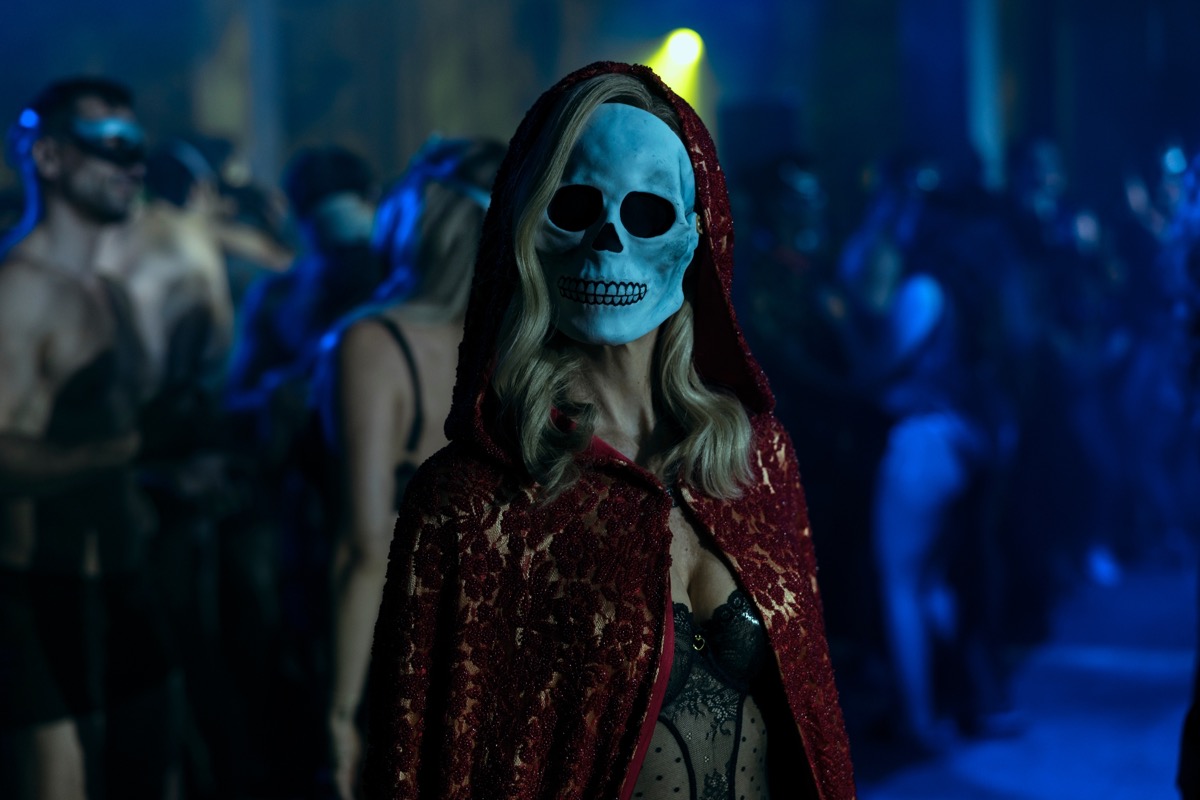‘The Fall of the House of Usher’ Is a Dream World for Poe Fans
5/5 Ravens

Everyone’s favorite spooky English class has been brought to life by Mike Flanagan with a brilliant new Netflix series. Merging our collective love of Succession with our morbid curiosity for the stories of Edgar Allan Poe, The Fall of the House of Usher weaves Poe’s stories into the woes of the Usher family. The patriarch of the family is Roderick Usher (Bruce Greenwood), who invites his friend Auguste Dupin (Carl Lumbly) to his childhood home to hear his story of woe after his family begins to die unexpectedly.
Much like the setup to the Poe story of the same name, the show itself weaves in a lot of other Poe narratives within its 8 episode arc. For someone like me, who is a self-named “spooky bitch,” the series delighted me. I was instantly transported back to English class in high school, where I would look at the themes presented in Poe’s work, and Flanagan not only honors the work and the love we have for it but puts his own spin on the characters in Poe’s story, bringing a modern sensibility to these horrors.
Filled with Flanagan’s typical cast of actors, the show jumps through time. We hop back and forth through the life of Roderick and his twin sister Madeline (Mary McDonnell) to see what brought them to their gory end. The Fall of the House of Usher focuses on the greed of its characters and their willingness to leave each other behind to find their own success.
Less frightening and more uneasy, the series keeps you connected by letting you focus on the stories you know from school, and that’s the addictive part of the series itself.
Bringing a modern sense to Poe’s world

Based on the head of a family who lets their addictive painkillers ruin the lives of their patients, the wealthy Ushers don’t care who they leave in their dust. It’s why the format of the show works so well with the slow fall of their success. The short story is all about how Roderick let his own desire for success blind him to the pain that it would cause those around him until he watched the destruction it caused in the end. The show is very much that same kind of lesson.
It’s not without its twists and turns in that Flanagan way, as well. The joy of this series comes from the way he weaves in Poe nods with characters who feel new and different while still being names we recognize. Most recognizable is Roderick’s granddaughter Lenore (Kyliegh Curran) ,or the title of episodes leading us down the path of where each story is taking us. But the twist is how these cautionary tales work in a modern world.
Never do they feel out of place. Flanagan has mastered the art of bringing Poe’s lessons to modern ideals and seeing this family, who uses the world around them for their own beliefs and greed, is both horrific and humbling when we see their downfall continue to play out throughout the season.
The fall of a family

Going into a show based on the stories of Edgar Allan Poe, we should know that there isn’t going to be a happy story in the end, and The Fall of the House of Usher doesn’t disappoint. It’s not pretending to hide the fear that Poe stories leave us with, and it reminds us at every turn that the inspiration behind these characters and this world came from the world that Poe built. We’re watching as this family rules everything and feels unstoppable, and what happens when they can’t use their power and their wealth to save themselves.
The Usher children are made up of two children from his first marriage, Frederick (Henry Thomas) and Tamerlane (Samantha Sloyan), and then three children that Roderick had who came into his life at different ages. We don’t know when Victorine (T’Nia Miller) came to him, but Camille (Kate Siegel) was 20, Napoleon (Rahul Kohli) was 18, and the youngest was Prospero (Sauriyan Sapkota). The children all used their wealth to be monsters in their own right, and the only sweet saving grace of the family continued to be Roderick’s favorite, his granddaughter Lenore.
Dark, gory, and filled with things to talk about in each episode, The Fall of the House of Usher is yet again a brilliant showcase of Mike Flanagan’s ability to adapt stories that frightened us throughout our younger years and bring them into our lives into a new way.
(featured image: Eike Schroter/Netflix)
Have a tip we should know? [email protected]
